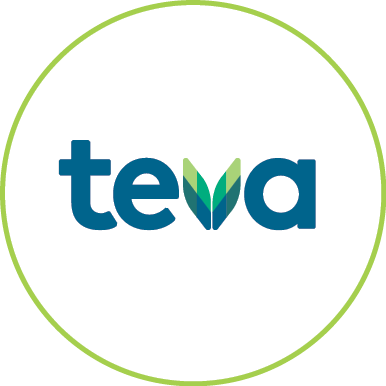Before you enroll…
Check these resources:
HEALTH
Middle East: Crisis and Disaster Resources
WEALTH
Taxes: “Ask Us Anything” Expert Forums
Health, WEALTH AND LIFE




Your first stop for personal health, wealth and life benefit details

Connect with a pro about your 2026 benefits

How to make the most of your coverage in 2026
Check these resources:
There are specific criteria and rules for employees, domestic partners and dependents to receive health care and COBRA coverage from Teva.
Going through life changes? Check our Moments that Matter Guide to see the ways Teva can help you and your family.
Then, go to mytevabenefits.com to make changes to your benefits. You have 30 days from the date of the life event to make updates and provide supporting documentation.
Spouse
A same- or opposite-sex individual who is legally married to you
Domestic Partner
You must verify your partner meets certain requirements by completing the Affidavit of Domestic Partnership Enrollment Form available on mytevabenefits.com and providing the form to the Teva Benefits Service Center. There are specific tax implications for covering domestic partners.
Dependent
Your or your spouse’s or domestic partner’s child(ren) up to age 26 (coverage ends on the last day the child is age 25) and/or disabled child(ren) older than age 26 (if approved by Meritain).
Teva offers health care benefits to all employees who are regularly scheduled to work 20 hours or more each week. Your benefits are effective on your date of hire. Upon your effective date of hire, you may also enroll your spouse, domestic partner and child(ren).
An individual who has been in a relationship of mutual caring for at least six months, resides with you and shares mutual obligation for basic living expenses. If your covered beneficiaries are not defined as tax dependents by the Internal Revenue Service (IRS), Teva must calculate the estimated fair market value of your health benefits and charge the value to you as imputed income.
Individuals who you may cover under the medical, dental, vision, life and accidental death and dismemberment (AD&D) and other programs. A valid Social Security number—and proof of dependent status (e.g., a birth/adoption certificate, tax form or marriage license)—is needed for each dependent. Newborn children can be enrolled without a Social Security number, but you’ll need to provide the Social Security number within 90 days of birth. If your child is disabled and older than age 26, you must provide documentation of the disability and dependency of a child age 26 or older within 31 days of the child’s 26th birthday.
The IRS does not consider domestic partners to be tax dependents. If you cover your domestic partner on your medical, dental and/or vision benefits, the value of the domestic partner’s benefits are taxed. On your pay statement, you will see the value of your domestic partner’s medical, dental and/or vision coverage added as earnings so that the amount can be taxed; this is called “imputed income.” After the tax is calculated, the same amounts are deducted (in effect the two cancel each other out, and the result is that you pay a little more federal income tax).
In addition to imputed income, the IRS does not allow the portion of the premium attributed to the domestic partner to be deducted pre-tax; it is deducted post-tax. Therefore, you will have both pre-tax and after-tax deductions for medical, dental and/or vision coverage that together equal the full premium.
This website (and any additional items or documents referred to on this website) is a summary of material modifications (SMM) for the Teva Medical Plan #262038. This SMM amends the most recent Summary Plan Description (SPD) and should be read together with the SPD. The SMM describes changes and provides clarifications to the SPD regarding the rules applicable to and benefits provided by the plans.